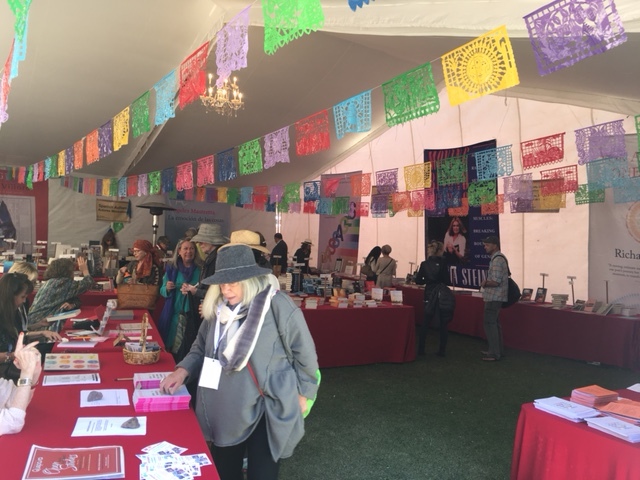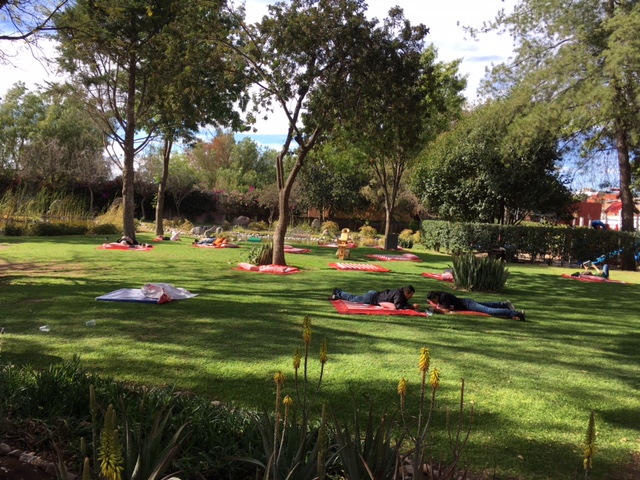Poets are Different from You and Me; They Hear Life and Experience it Through Sound
/PHOTOGRAPHY BY GEOFF SHELL
This “borrowing” from F. Scott Fitzgerald’s famous quote about the rich kept working its way through my head as I listened to award-winning poet Christina Pugh talk about her work and her process at my recent Literary Salon. Though his comment was disparaging, mine is meant with all admiration and, as one Salon guest put it, “awe.”
I’d met Christina in 2013 at what we both can only describe as a “celestial” experience at Ragdale, an artist’s retreat I’ve mentioned before in these posts. I’d been tremendously moved hearing her read her gorgeous words, delivered with a voice that invited us into a truly uncommon experience, and wanted to share. When she told me she had a new book out, Perception, we set a Salon date. However, of the nine Salons I’ve held over the past eight years, only one had featured a poet, and it was a bit of a hard sell to get my avid fiction readers to come out for it. That Salon, featuring the wonderful Parneshia Jones introducing her book Vessel, was a tremendous success for those who attended. I wanted an expanded audience to drop whatever “perceptions” about poetry might be holding them back and get re-excited about the literary form.
“I’m in Love With the Sound of Language”
I asked Christina to provide a frame for the audience to set the scene for her work by talking about Why Poetry? And how she’d come to it. It was at that point I realized why my early classroom attempts had been so miserable and that I’d made the best choice to stick to prose. I don’t have the ear.
“I’ve always heard the inflection of language on a street corner and it seemed natural to me to want to make something out of sound, that wasn’t exactly story telling.” Rather, Christina explained, her “something” was to be “less about story and more about diving deep into a moment and the perception of sound.”
She spoke of her verbal fascination with words and our strong responses to them, as well as her love of the process. “Poetry forces you to write in lines versus paragraphs, to establish a push and pull that uses voice and pauses to direct a reader through a sentence or a phrase.”
To illustrate, she began by sharing “Rotary,” an elegy to the phones we grew up with in this age of touch screens. She then read select other works as she moved to Perception’s more experimental Versa poems, where the pieces have both a back and a front, like a tapestry—one side showing the external face, the other on the flip page, the knots behind.
The Roaring Crowd
I was wrong about my audience. Never have those who couldn’t make it been so regretful. And, we had the biggest crowd yet, the best post-reading discussion. As one of the guests said, “we just want more.” As you will, too, when you listen to these videos.
I will be posting additional videos on my website and in my Facebook author page. More is just a click away. Perception, and all of Christina’s four books of poetry, are available on Amazon. As you read, imagine Christina’s voice and just…hear the incredible sound of language.
Perception
Perception consists of short poems rooted in observed objects. Using metaphoric description as well as association, the poems inhabit the objects or entities that they contemplate—ranging from paintings and shop signs to wallpaper and flower species. These poems are seeking to enact a tenor of attention—the power of singular focus—that is too easily lost in our multitasking age.
“Christina Pugh’s Perception transports us, from its opening starburst of phrases, through ravishing particulars. . . .”
“. . . I already find myself returning often to these beautiful, intricate meditations, grateful for what they release, grateful for what they restore.”







